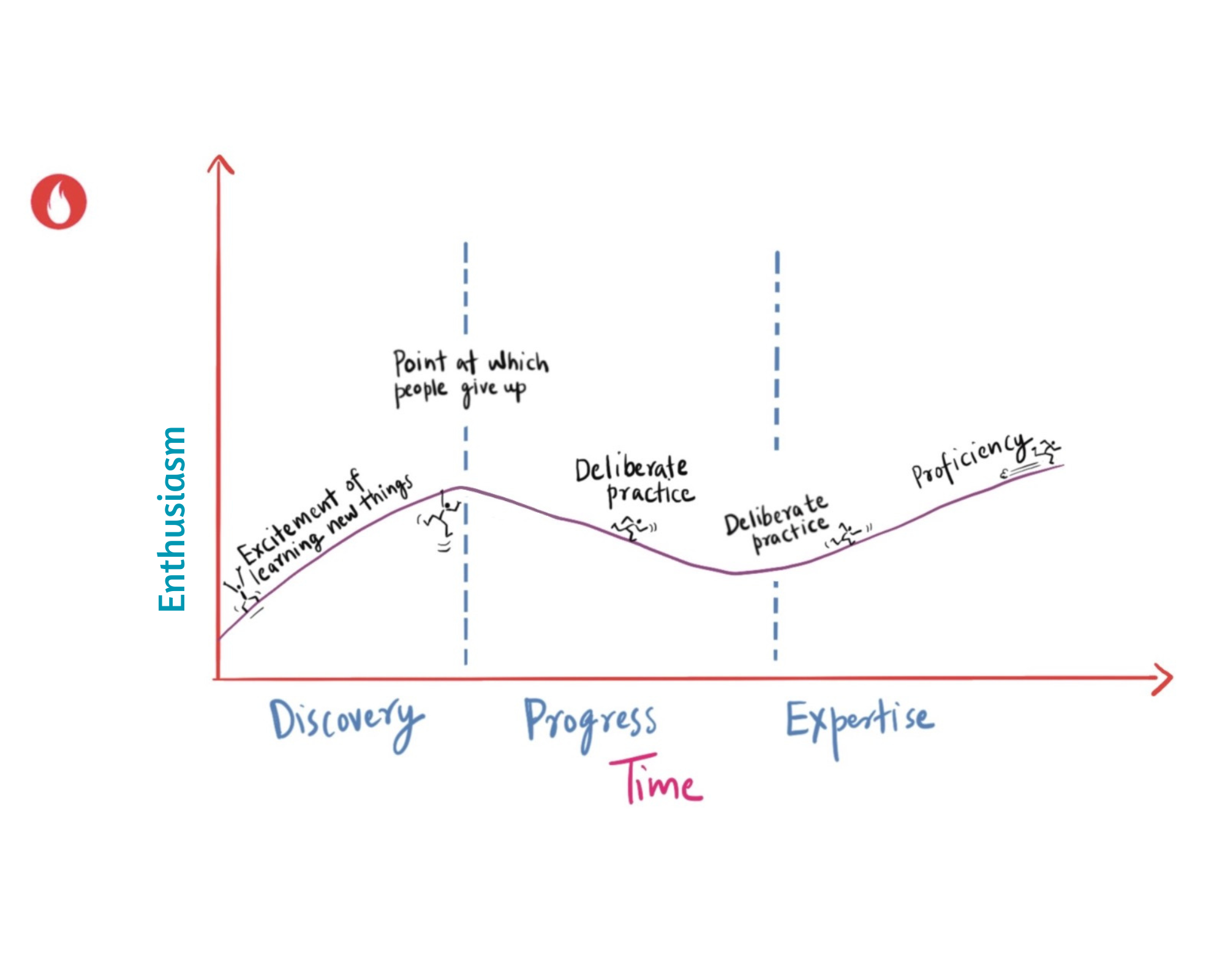The word boredom suggests – a person with lots of time on hand and little to do. Or someone who is dealing with a very boring and repetitive/mindless tasks. But boredom finds its way into the work of leaders and teams in different ways causing deep impact. Boredom if not spotted and dealt with, prevents growth, learning and change. In this post we explore how boredom could manifest in a busy and successful leader’s life. We then explore the research and strategies for managing boredom. First a few examples of how boredom manifests.
Boredom which impacts learning and change
Boredom can be sneaky. It can manifest in so many ways that sometimes, leaders and teams fail to spot it. Boredom can get in the way of building skills, depth and proficiency. Here are a few examples from real life experiences:
1. Boredom prevents practice:
It takes focus and effort to build any skill or mindset. Many of us enjoy the starting or discovery phase of learning something new. We build initial competence in the chosen area. However for depth and proficiency, repetition with feedback (deliberate practice) is important.
Boredom gets in the way of deliberate practice.
Flyntrok
How does boredom show up and get in the way of deliberate practice? Busy calendars, travel schedules and more important priorities. Why does boredom sneak in? It no longer is dopamine inducing once the discovery wears off and the hard yards of practice sets in. At the root of it is our inability to spot the boredom setting in which prevents us from building depth and proficiency.
2. Boredom makes us chase after new ideas.
Yes! Really. New ideas are often hailed as being creative and they are. Up until the point it becomes a distraction or a way to avoid dealing with details.
Solving a problem needs a thorough exploration of causes and impact. It needs working through messy issues and dealing with difficult decisions. Many times, it is non-glamourous work to get into the details and resolve things. At this point as boredom sets in, leaders and teams miss spotting it. Instead of digging deeper and resolving, teams decide to explore other ideas, newer technologies. Distracting themselves successfully
3. Boredom through goals
Goals which are not revisited and recalibrated periodically to match the skill levels, can induce boredom. We see leaders and teams continue to work from their comfort zone for years, before external events force change.
4. Boredom as a strategy!
I was surprised to come across instances where boredom is used as a strategy by the state and technology companies. Read here about how music streaming companies are slipping in cheap AI generated music, once they lull us into boredom. Or how the government has made the study of apartheid boring to avoid uncomfortable conversations in a multi racial society in South Africa.
Once i read this, i was starting to spot how boredom is used as a strategy to avoid many things from coming in to our radars! Can you too?
Importance of boredom in learning
Boredom has a bad reputation. Most of us consider it an emotion or a motivational state that we wish to avoid. A study published in 2014 found that 67% men and 25% women preferred getting electric shocks rather than being bored.
But research has also shown that boredom enhances creativity, productivity. It builds social empathy and connectedness. The right amount and kind of boredom can do wonders for our lives, minds, and careers. The nuance or important part being the right kind of boredom.
The authors of the book The Psychology Of Boredom say boredom is a wakeup call, to explore the emotion and understand it. Unfortunately, most of us prefer to get busy and brush the boredom away What are a few things leaders and teams can do to leverage boredom and lean into it? Rather than distract themselves with busy work and shiny ideas.
Working with boredom to enhance learning
Here are a few ideas from research and practice to consider for managing boredom and thereby enhance learning and growth:
1. Explore the emotion of boredom. It is important to be aware of and explore the root cause of boredom. Is boredom emerging from being unwilling to put the hard yards? Is it coming from the task being too easy or difficult?
2. Recalibrating expectations and goals for different phases of learning. Leaders and teams need to be aware of the different stages to building expertise and will need to fight boredom to stay the course.
Morgan Housel says it well ” There’s a sweet spot where you grasp the important stuff but you’re not smart enough to be bored with it”.
We would go so far as to draw the learning curve differently! What do you think?

Readings and References
- The bright side of boredom by Andreas Elpidorou – Frontiers in Psychology (2014)
- Lost by Definition: Why Boredom Matters for Psychology and Society by Erin Westgate & Brianna Steidle (2020)
- Increased Prosocial Intentions in Response to Boredom by Wijnand & Eric Igou, Kings College London
- Boredom–understanding the emotion and its impact on our lives by David, Pascalyne & Victoria (2023)
- Boredom in Learning: Authors Jennifer Vogel, Julian Abich, Sae Schatz
- Psychophysiology: Changes in frontal EEG asymmetry across a boring task – Authors – Sammy Perone, Elizabeth H. Weybright, Alana J. Anderson
- Creativity Research Journal : Does Being Bored Make Us More Creative? Authors Sandy Mann and Rebakh Cadman